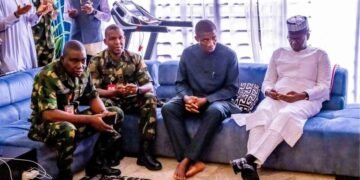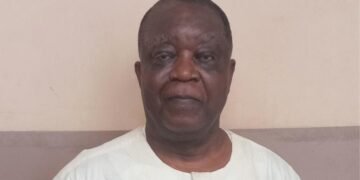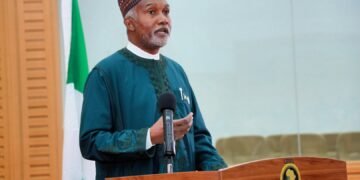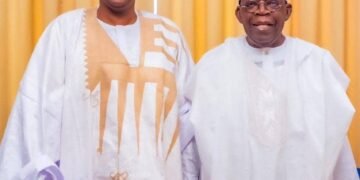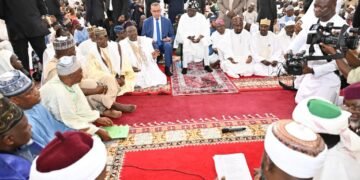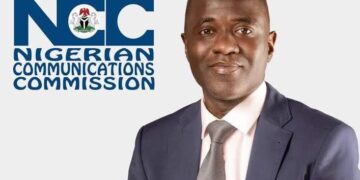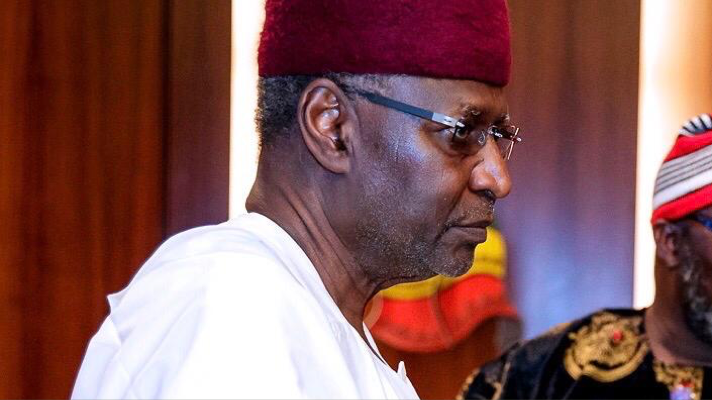First Published 1st October, 2012, on Thisday Newspaper
Why is Nigeria so important? It is perhaps the only country on the African Continent with all the attributes of a great power: size, population, arable land, water, oil, forests, hard minerals, tourist potential, in fact everything you require for a major modern economy. Yet…………here we are.
The “all powerful” centre is weak and confused; the periphery is doing all the running. Separatists; secessionists, nihilists; anarchists and even bandits are having a field day. The majority are onlookers, just despairing and even losing hope and faith in our federation and existence as a nation state. There is great pessimism about the future of the country.
As a result of our current difficulties – by all means not insurmountable – we tend to forget Nigeria’s wider responsibilities for the African Continent. Just consider: one out of every five Africans is a Nigerian; Nigeria is 20% of Africa and 47% of West Africa. It is evident that the future prosperity of Africa – the only continent the majority of which is stricken with poverty – is directly linked to the prosperity and stability of Nigeria.
On our shoulders rest the burden of a big responsibility; the responsibility to knock the continent into shape. If we allow this responsibility and opportunity to go, there is considerable risk of disaster to the West African sub-region with subsequent knock-on effects on the rest of Africa. We have to think about the wider consequences of not getting our act together.
We therefore must collectively confront and solve our local difficulties and face our wider responsibilities. We have triple challenges: to integrate our plural society at the political level (over 99% of our people are socializing, integrating and living in peace); take our entire population out of poverty to relative prosperity and create conditions for true representative and accountable governance.
Integration of Plural Society
A Federal constitution which we have, but don’t practice, is tailor made for our diversity and plurality. As Professor Hicks noted: “a federation is a symbol of diversity as well as unity”. It allows us to hold our respective portions in severalty and the whole in common.
India, with a population of 1.1b has different ethnic groups, different languages and cultures. It recognizes 18 main languages and 844 dialects and six main religions. India achieved this feat, according to V.K. Pandit, in a paper on the Evolution of India, “through the effort of countless generations to transform external diversities into an inner harmony. This attitude was responsible for the evolution of a composite culture which transcended the diversities of race and religion and became a living reality”. If India with about 8 times our population and much more diverse than us can achieve unity, there is no reason why we cannot. All that is required is to consciously and continuously emphasize the structural coordinates that unite us.
For our federation to have the desired objective, we must not only have a strong centre to hold the country together, but also viable state/regional governments that will generate income and provide services. In his classical treatise on Federal Government, Professor K.C. Wheare postulated: “In a Federation, the field of government is divided between a general authority and regional authorities which are not subordinate to one another, but co-ordinate to each other”.
The hangover of military governance, the size of the states and dependence on oil economy hand-outs, mean that the states have all but lost their autonomy, because the resource curse has killed any productive activity; there is money to be shared every month – courtesy of NNPC, Shell, ExxonMobil and Chevron.
I make bold to say with all seriousness that to return to true federalism, we must scrap the present 36 states in order for development to take place. The States and their bureaucracies are a fearful resource trap, where the bulk of resources go to pay totally unproductive staff.
Apart from the three regions we inherited at independence, there was no compelling reason to create states after 1967. The creation of 12 states in 1967 was to contain and isolate Ojukwu’s rebellion and unite the country against it. That exercise also removed the NPC/NCNC injustice of creating the Mid-West, out of the Western Region, ostensibly to weaken it, by the creation of South-Eastern and Benue and Plateau States which the alliance resisted. The creation of other states also removed the dominance of the North, a gesture that is neither acknowledged nor appreciated. Each of the 12 states is capable of being tolerably viable, big enough to do big things, big enough to attract good people but not dominant enough to threaten the rest of the federation as the old Northern Region did.
All the other acts of state creation were not in the overall national interest. The Midwest was to weaken the West; the short-lived decreeing of unitary system in 1966 was an attempt by the East to dominate the rest. All other subsequent exercises after 1967 were populist measures by military rulers with an eye to continuing in office.
A restoration of the 12 state structure (with some boundary adjustments where necessary), will reduce dependency on the centre, do or die competition for the centre, which currently has all the powers of patronage, more importantly the creation of local economies. Since Revenue allocation is a major source of controversy in a federation, particularly ours where resources, though natural, come from a particular location, the reduction in the number of states, with consequent huge savings on the cost of administration, will more than compensate for any decline in revenue, either due to fall in oil prices or even 50% derivation to the oil producing localities on the on-shore revenues, which bear direct impact on the environment and means of livelihood of the locals. We should evolve a fair, just and equitable revenue allocation formular which will take the special needs of the Niger Delta region and balance it with the needs of the rest of the country in tune with the responsibilities devolved to the Federal, States and Local Governments. But the present temporary situation where littoral states are granted derivation on offshore fields is totally unprecedented anywhere in the world, unconstitutional, irrational and has to be reversed. The Federal Government’s recent statement that the issue is settled is wrong. This matter has to be rectified.
Economic Frame work
There has to be a complete rethink on the economic framework of the country. We cannot even begin to solve problems for the generality of our people if we look at them purely from Western prescriptions – the state is the problem while the market is the solution. Well, that was up to 2008, when massive market failure was solved by the state at a price to the wider society. As Professor J. Needham, the Cambridge Bio-Chemist noted: “the problems of the world will never be solved so long as they are considered only from the European point of view”. and advised “the newly awakening peoples of Africa should have full opportunity to borrow from awakening non-European sources in their social and national development”. That was in 1955. In 2010, 55 years later, Thomas Karier, surveyed – in his book Intellectual Capital – the forty recipients of Nobel Prize in Economic Sciences, since it was instituted in 1969 and pointed out that only two recipients, Professors Amartya Sen and Arthur Lewis, showed interest in the problems of underdevelopment that led to widespread poverty, hunger, illiteracy and disease. Both did so because of their background and had direct experiences of underdevelopment and its consequences. Sen is an Indian, Lewis from the Caribbean. Mainstream Western Economists ignored less developed centres or simply assumed that they operated under the same principles as developed nations – one size fits all.
Ngiam Tong Daw, not a recognizable name, was a Mandarin of the celebrated Singapore Civil Service of forty years experience, a country that moved from a third world to first world status. In his reflections, he wrote: “my generation only knew of one economist who wrote on the problems of development in poor countries. He was Professor Arthur Lewis……… he expounded with great clarity and empathy the economic theories underlying economic and social problems in developing countries.” His treatises after seventy years read as if they were written last month.
For those Economic Advisers to the Nigerian Government who are charged with the responsibility of providing the framework and policy options, I recommend that they should study the contributions of Arthur Lewis and Amartyn Sen rather than the new-fangled Bretton Woods inspired Western economists.
The problems faced by developing countries are fundamentally different from the problems of the developed world. Our problems are poor infrastructure, poverty, illiteracy and disease, theirs are interest rates, mortgage rates competition and International Trade. We are still steeped in rural poverty and urban squalor, yet to strive for the sky; while they have since gone to the moon and are now exploring Mars. There is a lot to learn from the West e.g. good governance and strong institutions, but not developmental priorities for shared prosperity.
We must, therefore, as a first step shake the shackles of the prescriptions of the World Bank and the IMF and read more of Lewis and Sen. We might with benefit only read Paul Collier’s books with fanciful titles for pleasure. At all events, even the sponsors of IMF/World Bank now confess to the venality of the Bretton Wood institutions. Hear Paul Volcker, former Chairman of U.S. Federal Reserve: “When the IMF consults with a poor and weak country, the country gets into line. When it consults with a big and strong country IMF gets in line. When the big countries are in conflict, IMF gets out of the line of fire”.
If we are to achieve general prosperity to ensure social and political stability, we must stick to the basics, by returning to first principles. A reading of Walt Rostow’s three stages of economic growth is essential. The first stage is agriculture, a point buttressed by Lewis, who attributed common cause of low economic growth to absence of a vigorous agricultural policy. “Agricultural stagnation is the main constraint on the rate of growth. It keeps down living standards of the great majority of the people, and in restricting their purchasing power, restricts also the scope of industrialization. It is the prime cause of low capital formation and low rate of savings. It contributes to a shortage of foreign exchange, either by failure to earn more (we earn enough from oil) or by failure to supply the growing urban demand for food and raw materials”. Oil and wrong policies mean we have to import food.
The secondary stage for Rostow is manufacturing, but this stage depends on the first, farmers must have surplus to have purchasing power to patronize manufactured goods and boost the manufacturing base in addition to being the basis of middle class capital formation. If this looks like a lecture to third year economics class I apologize. But we must go back to basics.
Don’t forget what our great leaders of the First Republic did. With cash crop surpluses (groundnut, cotton, hides and skins), Northern Nigeria developed NNDC, Marketing Boards, Bank of the North, Kaduna Polytechnic, relatively free education etc. The West (Cocoa, rubber) developed WNDC, National Bank of Nigeria, relatively free education etc. The East (Palm oil & kernel, rubber, wood) developed ENDC, African Continental bank, advanced commerce etc. These leaders achieved so much because they followed the right policies based on the right economic and philosophical framework.
To bring IMF/World Bank economists to run your economy today is the height of folly. They will not run your economy. They will ruin it.
Rostow’s third stage is tertiary – services. This is the sector now most favoured in Nigeria – last thing first! But the beneficiaries of this sector are too few and the numbers being left behind are too large for comfort. India’s spectacular I.T. industry was celebrated as the poster child of the success of the service sector; India became the Business Processing Operations Centre of the World. However, the Indians have now discovered that the service sector alone cannot reduce poverty or unemployment, hence the shift in policy emphasis back to agriculture and manufacturing. You cannot skip these stages of development without skipping a very large number of our people and consigning them to poverty, illiteracy, disease and unemployment. You cannot have inequity, injustice and expect to have social peace and political stability.
Even in the developed economies, manufacturing is key. Germany alone is shielded from the Eurozone crisis – a crisis created by the private banks – because of its industrial base. It is therefore imperative that we rebalance our economic policy priorities in favour of agriculture and industries, for a real balanced and inclusive growth and reduce inequality between regions and within regions to attain equity and justice for all. Inequality and injustice are more potent forces for social and political instability than ethnic, religious or regional plurality. It must also be emphasized that at this stage of our development the state has to play a dominant and decisive role in the fields of agriculture, education, health, infrastructure and manufacturing, until such time when we are able to strike a balance between the public and private sectors; a welfare state and a market economy; but never a market society. A state that is patriotic, competent and efficient and a private sector that is entrepreneurially innovative and inventive not one dominated by unpatriotic buccaneers, speculators and fraudsters in cahoots with unpatriotic government officials to loot the country.
Democracy
Representative and accountable governments evolve over time. But a certain level of social and economic development has to be achieved for true democracy to be in place. We spend billions, kill thousands, detain hundreds and burn properties, only to go through empty processes and come out with plainly dishonest election numbers. Most self respecting people or who are capable of honest, competent and selfless service are kept away from participating in politics and even public service. Take a few examples from countries whose institutions we shamelessly try to copy but hopelessly fail.
Must everybody, particularly in the legislative arm be directly elected? I posit, there is no need.
In the United States, when a senate seat is vacated for whatever reason, the state governor appoints a replacement until the next election. In Italy, the President has powers to appoint even a non-politician to the Senate. When scandal prone Berlusconi resigned, his replacement as Prime Minister did not come to office as a result of a General Election or a sitting elected member. He was neither a politician nor a parliamentarian. The President appointed him to the Senate and he became the Prime Minister. In the United Kingdom, the self-proclaimed mother of Parliaments, a recent attempt to abolish the hereditary and appointed House of Lords, which acts as the Second Chamber was dropped, because it did not enjoy support from members of the elected House of Commons nor from the wider British public. The House of Lords is a reservoir of experience and expertise. Greece the birthplace of Western democracy, has a Prime Minister who is neither a politician nor elected.
We should also consider how to provide in our constitution means by which in the legislature a certain percentage of experienced non partisan experts could become members to add value to law making and scrutiny of executive powers free from party whips or an eye on the next election – or on the main chance.
It has been repeated times without number that the best way for democracy to evolve is through development of local institutions arising organically from our cultural attributes. We try to ape, copy western nations in our democratic experiments but we only copy the vacuous things: mace, majority, opposition, quorums, points of order and other inanities while ignoring the essence of true democracy: respect for the law, strong institutions, accountability, respect for public opinion and above all free and fair elections. None of the last 3 Presidents since 2003 has been properly elected. Only a handful of governors and a few dozen state and national assembly legislators have been properly elected and everyone knows it. Consequently they vote for themselves obscene renumerations and close their eyes and ears to public disapproval of their actions.
Education – The catalyst for everything
The challenges we face, the integration of plural society, a modern economy and a representative and accountable government, can only be achieved if we commit to ensuring that within a generation, the entire society is literate, at least up to primary level, with a specific programme for adult literacy. Lee Kuan Yew, said somewhere: “for a modern economy to succeed, a whole population must be educated”. This challenge has nothing to do with the size of the population.
China with the population of 1.3 billion people, had by 1999 achieved 98% success in educating its population up to Primary level. Japan, the first non-western nation to achieve modernity has as far back as 1872 committed to the following objective: “There shall in the future be no community with an illiterate family, nor a family with an uneducated person” and concluded thus: “our people are not different from Americans or Europeans of today, it is all a matter of education or lack of education”.
People need to be educated to appreciate the richness and benefits of diversity and plurality, they require education to be productive in agriculture for the application of modern techniques and skills for operating machinery. Only an educated population can consciously and freely elect its representatives and hold them accountable. Former Governor Sheriff of Borno State was famously reported to have said: “a lot of falsehoold has been published over the years in newspapers about my government and I never lose sleep over them because less than five percent of Borno people can read and understand what is written in newspapers”! You see what I mean?
This attitude illustrates H.G. Wells’ contention in his Outline of History: “human history becomes more and more a race between education and catastrophe”.
There is no greater denial of human rights than lack of Education. Or as Amartya Sen said in a lecture to the Commonwealth Education Conference in Edinburgh: “if we continue to leave the vast sections of the people of the world outside the orbit of education, we make the world not only less just, but less secure”!
We can pause in this dialogue and ask:
Where are our priorities?
How do we move our country forward?
How do we move Africa Forward?
I submit that the starting point is what has been prescribed in this short paper.
The late Mallam Abba Kyari was Chief of Staff to President Muhammad Buhari

